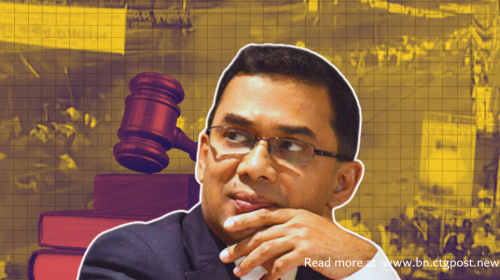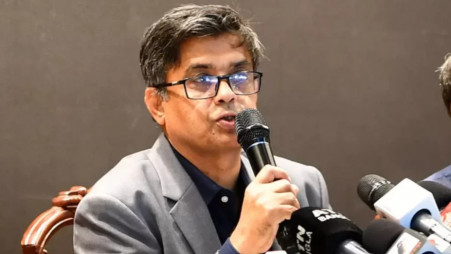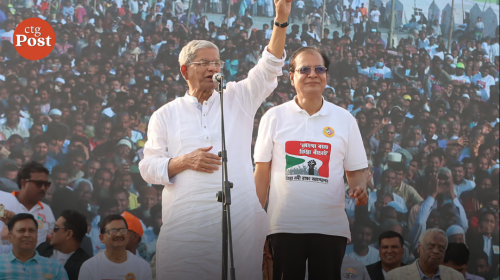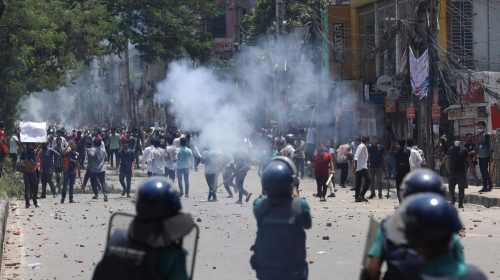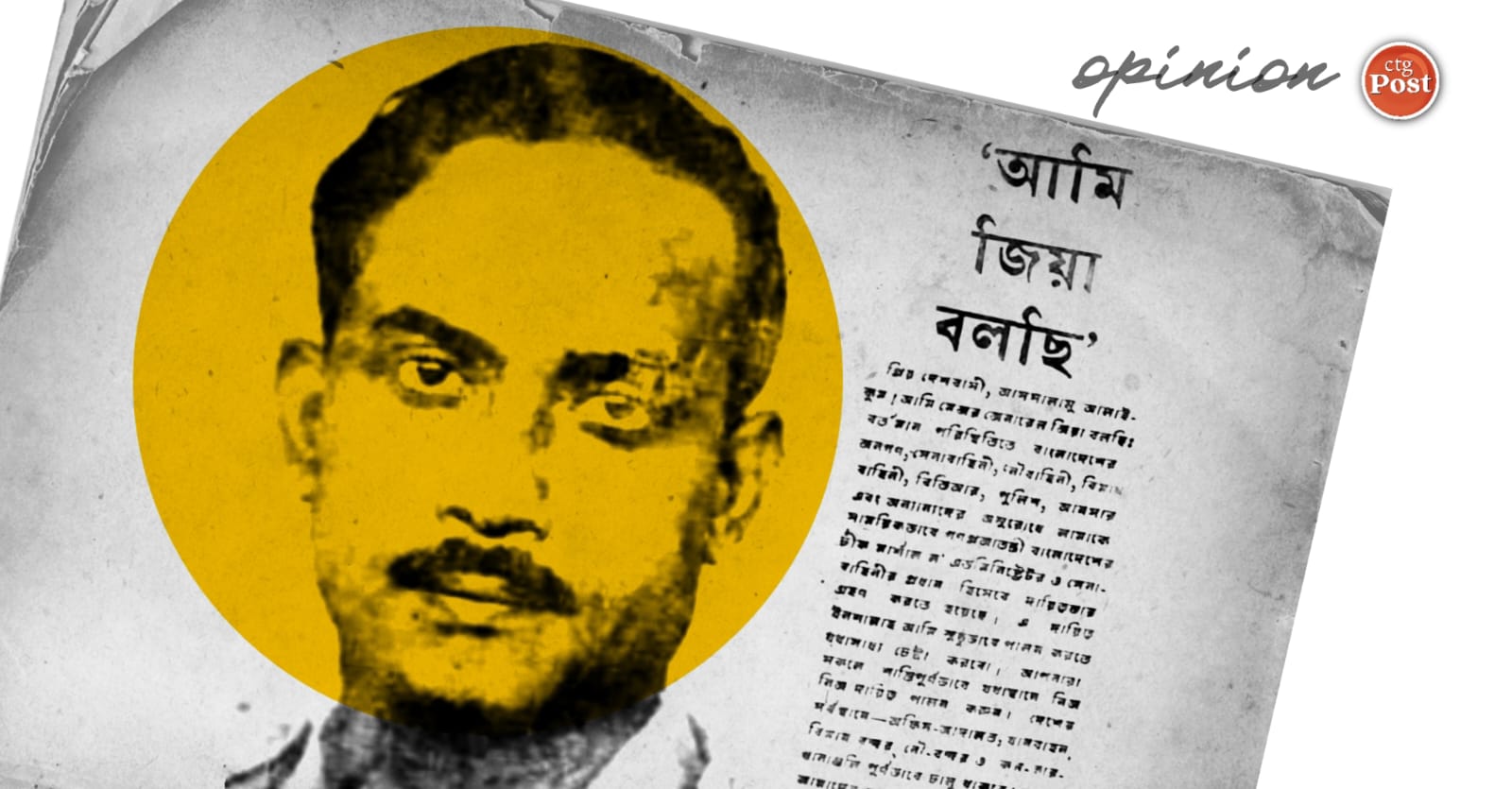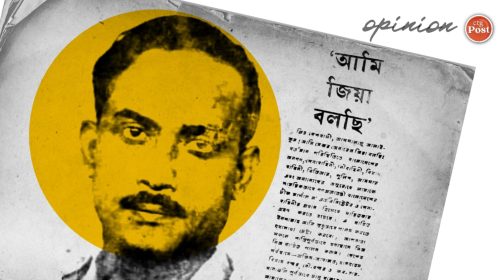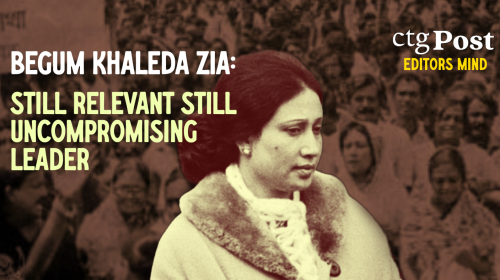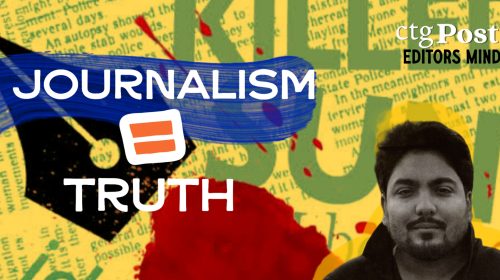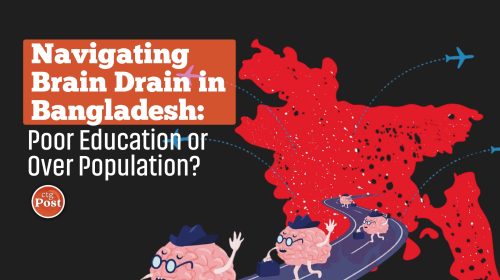Through a series of arguments, counterarguments, beliefs, distrust, revolutions, counter-revolutions, murders, and dramatic events, Zia came to power. Supporters of BNP and Zia believe that Zia ascended to power through the collective revolution of the soldiers and the public.
At that time, the political and economic instability led to public outrage. The citizens of the newly independent country were dissatisfied. Unemployment, food shortages in the market, a decline in law and order, rumors, and the dominance of corrupt figures caused a loss of trust in political parties. This is why, after November 7, the military directly engaged in politics and governance, and as a result, democracy in the country suffered.

During this time, military rule had taken over in many countries across the world, including Arab, African, and South American nations. Ziaur Rahman also came to power through the events of November 7. However, unlike other military rulers, he did not establish a one-party rule. He particularly did not follow the one-party system seen in South American countries.
Zia’s rule was different from other military-controlled countries of that time. He introduced new plans and programs, focusing on economic reconstruction through political agendas. Ziaur Rahman’s politics can be interpreted in the context of Bengali nationalism. A new form of nationalism, distinct from the ideas of ethnic and civic nationalism, began to develop under Zia. While it might not have been Zia’s sole idea, the collective effort of those involved in the creation of BNP helped spread this new nationalist thought. Before this, the concept of Bengali nationalism was mentioned in the speeches and writings of Maulana Bhashani and Abul Mansur Ahmed, but their ideas were not clearly defined.
After November 7, Zia applied Bengali nationalism through political, economic, and social activities. Nationalism, however, is always a controversial and dangerous idea. Intense nationalism can turn into extremism. The dangers of nationalist nationalism were seen in Germany and Italy at the beginning of the 20th century.

By the mid-19th century, the appeal of nationalist nationalism had begun to fade. After the French Revolution and the counter-revolution, doubts started to arise about nationalist ideas. Even though Europe accepted the concept of nation-states based on national identity after the 1648 Treaty of Westphalia, the problems were not solved.
Thus, we see that while nationalist nationalism may justify killing people or opponents in the name of religion, it approves of wars in the name of national interest or security. At the same time, it started applying Christian morality as law under the guise of secularism. It created divisions among citizens within the state through the “us vs. them” mentality and began establishing colonies outside the state.
This led to a failure in the democratic ideals that Europe had hoped for, moving away from the monarchical system. Instead, the horrors of the First and Second World Wars brought the dangerous aspects of nationalist nationalism into the open.
As an alternative to nationalist nationalism, civic nationalism, based on the identity of citizens, began to develop in the mid-19th century. However, in the post-colonial era, even civic nationalism continued to maintain divisions between citizens and non-citizens within the state. It was from the 1960s onward that a new form of state nationalism emerged, outside the ideas of both nationalist and civic nationalism.
This form of nationalism does not base national identity on ethnicity or citizenship. Rather, it is built on the foundation of the state itself. State nationalism is relatively more inclusive, multiparty, and does not approve of divisions based on ethnicity, race, or religion.
The philosophical production of November 7 is Bengali nationalism. Its emergence may have already occurred in public consciousness, but November 7 gave it institutional form. From a class or character perspective, Bengali nationalism can be seen as a form of state nationalism.
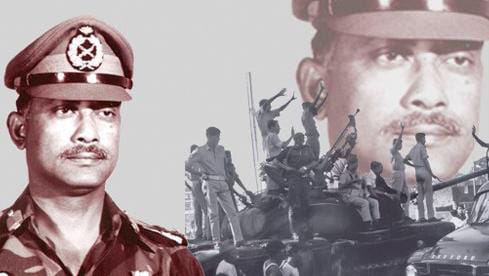
Ziaur Rahman was entirely successful in applying state nationalism, though not without criticism. He compromised on the secular aspect of state nationalism. However, he was successful in applying a multi-ethnic, participatory nationalism in terms of race and ethnicity. This is why Ziaur Rahman was different from his contemporaries in military rule.
Ziaur Rahman’s rule is often criticized, but he introduced new ideas and plans in politics. For these reasons, it is impossible to erase November 7 and Ziaur Rahman from the pages of history.
Zia came to power through a series of arguments, revolutions, and dramatic events. Supporters of Zia and BNP believe that Zia gained power through the combined efforts of soldiers and the public.
At that time, the country was facing political and economic troubles, which made people angry. The citizens of the newly independent country were unhappy due to unemployment, food shortages, worsening law and order, rumors, and corruption. As a result, trust in political parties declined, and after November 7, the military took over politics and governance, harming the country’s democracy.
In many countries around the world, including in the Arab, African, and South American regions, the military had taken power. Ziaur Rahman also rose to power through the events of November 7. But unlike other military rulers, he did not create a one-party system, which was common in South American countries.
Zia’s rule was different from others. He introduced new plans and programs, focusing on rebuilding the economy. Zia’s politics can be seen as part of Bengali nationalism. He helped develop a new form of nationalism, different from ethnic or civic nationalism. This new idea of nationalism wasn’t just Zia’s alone; it grew from the collective efforts of those involved in forming BNP. Earlier, Bengali nationalism was mentioned by Maulana Bhashani and Abul Mansur Ahmed, but their ideas were not as clear.
After November 7, Zia applied Bengali nationalism through political, economic, and social actions. Nationalism is always a controversial idea and can sometimes lead to extreme actions. We saw the dangers of nationalist nationalism in Germany and Italy during the early 20th century.
By the mid-19th century, the appeal of nationalism began to fade. After the French Revolution, people started doubting nationalism. Even though European countries adopted the idea of nation-states after the 1648 Treaty of Westphalia, the problems it caused remained.
Nationalism, while justifying violence in the name of religion, often approves wars for national interest or security. It also began using Christian morality as law under the guise of secularism, creating divisions within the state and even establishing colonies outside it.
This caused a failure of the democratic ideals that Europe had hoped for. The horrors of the First and Second World Wars showed the dangerous side of nationalist nationalism.
In the mid-19th century, a new form of nationalism, based on the identity of citizens, started to emerge as an alternative to ethnic nationalism. But even after colonialism ended, civic nationalism still created divisions between citizens and non-citizens. From the 1960s, a new kind of nationalism, state nationalism, started to appear.
This new nationalism is based on the state, not ethnicity or citizenship. State nationalism is more inclusive and does not support divisions based on race, religion, or ethnicity.
The philosophical idea behind November 7 is Bengali nationalism. It may have been developing earlier, but November 7 gave it formal recognition. This form of nationalism can be seen as state nationalism.
Ziaur Rahman was successful in applying state nationalism, though he faced criticism. He made compromises on secularism but succeeded in applying a multi-ethnic, inclusive form of nationalism. This is why Zia was different from other military rulers.
Zia’s rule is often criticized, but he introduced new ideas in politics. For these reasons, November 7 and Ziaur Rahman will always be an important part of history.




